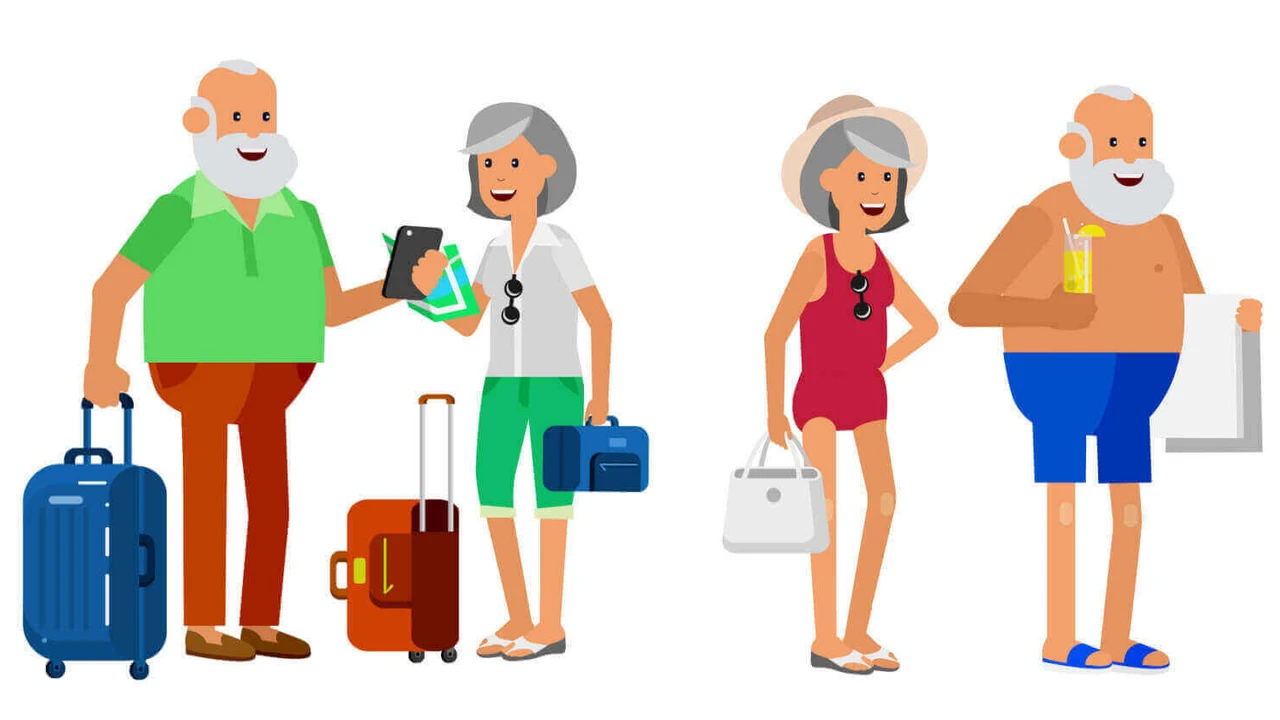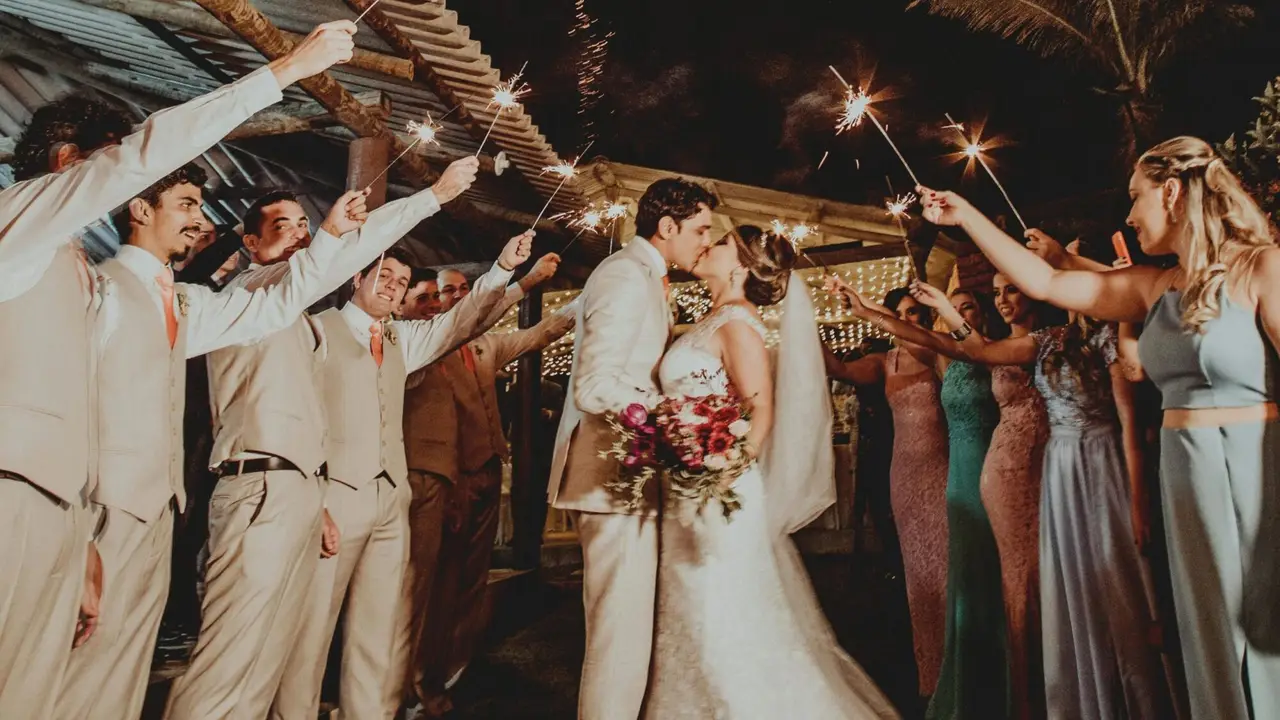Senior Trip Etiquette Understanding Local Customs
Learn senior trip etiquette for various cultures. Respect local customs and traditions for a more enriching travel experience.

Senior Trip Etiquette Understanding Local Customs
Learn senior trip etiquette for various cultures. Respect local customs and traditions for a more enriching travel experience.
Embarking on a senior trip is an exciting adventure, a chance to explore new places, meet new people, and create lasting memories. However, to truly make the most of your journey, especially when traveling to diverse cultures in the US and Southeast Asia, understanding and respecting local customs and etiquette is paramount. It's not just about avoiding awkward situations; it's about showing respect, fostering positive interactions, and enriching your overall travel experience. This comprehensive guide will delve into the nuances of cultural etiquette, offering practical advice and product recommendations to help you navigate different social landscapes with grace and confidence.
Why Senior Trip Etiquette Matters for a Smooth Journey
Understanding local customs goes beyond mere politeness; it's a fundamental aspect of responsible and enjoyable travel. When you make an effort to respect local traditions, you're not only showing appreciation for the culture you're visiting but also opening doors to more authentic interactions. Locals are often more welcoming and willing to share their insights when they see you making an effort to understand their way of life. Conversely, unintentional breaches of etiquette can lead to misunderstandings, offense, or even legal issues in some extreme cases. For senior travelers, who might be more accustomed to certain social norms, adapting to new environments can be particularly challenging but incredibly rewarding. It's about being a respectful guest, not just a tourist.
General Senior Trip Etiquette Tips for Global Travelers
While specific customs vary widely, some general principles apply across many cultures. These are good starting points for any senior traveler venturing into new territories.
Dress Code Considerations for Senior Travelers
Modesty is often a key consideration, especially when visiting religious sites or conservative areas. In many parts of Southeast Asia, for example, shoulders and knees should be covered when entering temples or mosques. Even in some parts of the US, certain establishments or events might have dress codes. Always research the local norms before you go. For women, carrying a lightweight scarf or sarong can be incredibly useful for impromptu temple visits. For men, long pants and collared shirts are generally safe bets. Consider breathable fabrics like linen or cotton for comfort in warmer climates.
Greetings and Gestures Senior Trip Social Interactions
A simple greeting can go a long way. In many Asian cultures, a slight bow or a 'wai' (a prayer-like gesture with hands pressed together) is common in Thailand, rather than a handshake. In the US, handshakes are standard, but a warm smile and direct eye contact are always appreciated. Always observe how locals greet each other and try to emulate them. Avoid pointing with your finger in many cultures, as it can be considered rude; use an open hand instead. Similarly, avoid touching someone's head in many Asian cultures, as it's considered sacred.
Dining Etiquette for Senior Trip Foodies
Food is a huge part of any travel experience, and dining etiquette varies significantly. In some cultures, it's polite to slurp your noodles (Japan), while in others, it's considered rude. In many Southeast Asian countries, eating with your right hand is customary, especially when eating traditional dishes. Always wait to be seated or invited to eat. Don't stick chopsticks upright in your rice bowl, as it resembles incense sticks at a funeral. Tipping customs also vary widely; research this beforehand to avoid over or under-tipping. For instance, in Japan, tipping can be seen as an insult, while in the US, it's expected.
Photography Etiquette Senior Trip Photo Opportunities
Always ask for permission before taking photos of people, especially children or those in traditional attire. Some indigenous communities or religious sites may prohibit photography altogether. Be discreet and respectful. Avoid using flash in dimly lit temples or museums. If you're unsure, it's always better to err on the side of caution and refrain from taking the picture. Consider a compact, quiet camera for less intrusive photography.
Bargaining and Shopping Senior Trip Souvenir Hunting
In many markets in Southeast Asia, bargaining is expected and part of the cultural experience. However, do so respectfully and with a smile. Don't be aggressive or rude. Start with a reasonable offer and be prepared to walk away if the price isn't right. In the US, prices are generally fixed, and bargaining is not common outside of specific contexts like flea markets or car dealerships. Always be mindful of local vendors' livelihoods and avoid driving prices down to an unreasonable level.
Senior Trip Etiquette in the United States Specifics
While the US is a melting pot of cultures, there are some general etiquette guidelines that are widely accepted.
Tipping Culture in the US for Senior Travelers
Tipping is a significant part of the service industry in the US. For restaurant servers, 15-20% of the bill is standard. For taxi drivers, bartenders, and hotel staff (bellhops, housekeepers), a few dollars per service is customary. Not tipping or tipping too little can be seen as rude or a sign of dissatisfaction with the service. Always carry small denominations of cash for tipping.
Personal Space and Direct Communication in the US
Americans generally value personal space. Avoid standing too close to people you don't know well. Direct communication is also common; people tend to be straightforward and explicit in their language. While politeness is appreciated, indirectness can sometimes lead to confusion. Eye contact during conversations is generally a sign of attentiveness and respect.
Queueing and Public Behavior in the US
Queueing (lining up) is expected and respected in the US, whether at a store, airport, or attraction. Cutting in line is considered very rude. Public displays of affection are generally acceptable but should be kept modest. Loud conversations or disruptive behavior in public spaces are generally frowned upon.
Senior Trip Etiquette in Southeast Asia Cultural Deep Dive
Southeast Asia is incredibly diverse, but some common threads run through its various cultures. Always remember that these are generalizations, and specific regions or ethnic groups may have their own unique customs.
Respect for Elders and Monks in Southeast Asia
In many Southeast Asian cultures, there is a deep respect for elders. Always show deference to older individuals. In Buddhist countries like Thailand, Laos, and Cambodia, monks are highly revered. Women should never touch a monk, and it's polite to give way to them on the street. When offering something to a monk, do so with both hands, and if you are a woman, place it on a cloth or table for them to pick up.
Foot Etiquette and Head Sacredness in Southeast Asia
The feet are considered the lowest and dirtiest part of the body, while the head is the most sacred. Never point your feet at someone, a Buddha image, or a sacred object. When sitting, try to tuck your feet under you or point them away from others. Never step over someone's legs or over food. Conversely, never touch someone's head, even a child's, as it's considered highly offensive.
Public Displays of Affection in Southeast Asia
Public displays of affection (PDA) are generally frowned upon in most Southeast Asian countries, especially in more conservative areas. While holding hands might be acceptable for couples, kissing or intimate embraces in public are usually not. Be mindful of local sensibilities and keep public interactions modest.
Bargaining and Politeness in Southeast Asian Markets
As mentioned, bargaining is common in markets. Do so with a smile and good humor. It's a social interaction, not a confrontation. Always be polite and respectful, even if you don't agree on a price. A simple 'thank you' (e.g., 'khob khun krap/ka' in Thai, 'terima kasih' in Malay/Indonesian) goes a long way.
Dress Code for Temples and Religious Sites in Southeast Asia
When visiting temples, mosques, or other religious sites, always dress modestly. This typically means covering your shoulders and knees. Some temples may require you to remove your shoes before entering. Look for signs or observe what locals are doing. It's a sign of respect for the sacred space.
Recommended Products for Senior Trip Etiquette Preparedness
Being prepared with the right items can help you navigate cultural nuances more smoothly. Here are a few recommendations:
Lightweight Scarf or Sarong for Modesty
Product: Travel Scarf by Waypoint Goods
Description: This versatile scarf is made from a lightweight, breathable fabric (often rayon or modal) that can be easily folded into a small pouch. It's large enough to cover shoulders and knees when visiting religious sites, or can be used as a head covering. It comes in various colors and patterns, making it a stylish accessory as well.
Use Case: Essential for women visiting temples, mosques, or conservative areas in Southeast Asia. Can also be used as a light blanket on planes or a sun shield.
Comparison: Unlike a regular fashion scarf, travel scarves are specifically designed to be lightweight, quick-drying, and often have hidden pockets for valuables. Cheaper alternatives might be heavier or less versatile.
Price Range: $25 - $45 USD
Compact Language Translation Device for Communication
Product: Pocketalk Plus Voice Translator
Description: A dedicated two-way voice translator that supports over 82 languages. It uses cloud-based translation for higher accuracy and has a large touchscreen for easy navigation. It's designed for real-time conversations, making it ideal for asking for directions, ordering food, or engaging in basic conversations when language barriers exist.
Use Case: In countries where English is not widely spoken, this device can bridge communication gaps, helping you ask for permission (e.g., for photos), understand local customs, or simply engage with locals.
Comparison: While smartphone apps like Google Translate are free, dedicated devices often offer better microphone quality, longer battery life, and are less distracting than pulling out your phone. Some models also offer offline translation capabilities.
Price Range: $250 - $350 USD
Small Denomination Currency Wallet for Tipping and Bargaining
Product: Travel Money Belt by Zero Grid
Description: While primarily a security item, a money belt with multiple compartments can be excellent for organizing small denominations of local currency. This particular model is slim, worn under clothing, and has several zippered pockets. It helps keep your larger bills separate from smaller ones, making it easier to access exact change for tips or bargaining without flashing large amounts of cash.
Use Case: Perfect for managing cash for tipping in the US or for bargaining in Southeast Asian markets. Keeps your money organized and discreet.
Comparison: Regular wallets can be bulky and make it obvious how much cash you're carrying. A money belt offers better security and organization for different denominations, especially useful when you need quick access to small bills.
Price Range: $15 - $30 USD
Portable Hand Sanitizer for Hygiene and Respect
Product: Purell Advanced Hand Sanitizer Travel Size
Description: A classic, reliable hand sanitizer in a convenient travel size. While not directly an etiquette tool, maintaining good hygiene, especially before and after meals or after handling money, is a sign of respect in many cultures. It's particularly useful in places where clean water and soap might not be readily available.
Use Case: Essential for maintaining personal hygiene, especially when eating with hands in certain cultures or after handling money during bargaining. Shows consideration for others.
Comparison: Many brands offer hand sanitizers. Purell is widely recognized for its effectiveness. Look for alcohol-based sanitizers (at least 60% alcohol) for optimal germ killing.
Price Range: $3 - $8 USD (for multi-packs)
Comfortable Slip-On Shoes for Easy Temple Access
Product: Skechers Go Walk Series
Description: These shoes are known for their comfort, lightweight design, and ease of slipping on and off. Many temples and homes in Southeast Asia require you to remove your shoes before entering. Having a pair that can be easily slipped on and off saves time and hassle, and shows respect for the custom.
Use Case: Ideal for visits to temples, mosques, or homes in Southeast Asia where shoe removal is customary. Also great for airport security lines.
Comparison: While any slip-on shoe works, Skechers Go Walk are specifically designed for comfort and breathability, making them suitable for long days of sightseeing in warm climates. Avoid lace-up shoes if you anticipate frequent shoe removal.
Price Range: $50 - $80 USD
Navigating Sensitive Topics and Cultural Missteps on Your Senior Trip
Despite your best efforts, cultural missteps can happen. The key is how you react.
Apologizing Gracefully for Senior Travelers
If you realize you've made a mistake, a sincere apology goes a long way. A simple 'I'm sorry' (and perhaps a phrase in the local language if you know it) accompanied by a respectful gesture can often smooth things over. Most locals understand that tourists are not intentionally trying to offend.
Observing and Learning Senior Trip Cultural Immersion
The best way to learn is by observing. Pay attention to how locals interact with each other, how they dress, and how they behave in public spaces. If you're unsure about something, it's often better to watch and learn before acting. Don't be afraid to ask polite questions if you have a local guide or a friendly local you've connected with.
Patience and Flexibility for Senior Trip Adventures
Things might not always go as planned, and cultural differences can sometimes lead to frustration. Practice patience and maintain a flexible attitude. Remember that you are a guest in someone else's country, and adapting to their way of life is part of the adventure. Embrace the differences rather than resisting them.
Researching Before You Go Senior Trip Preparation
The most effective way to avoid etiquette blunders is to do your homework. Read up on the specific customs of the regions you'll be visiting. Travel guides, reputable travel blogs, and government travel advisories can provide valuable insights. Knowing what to expect will significantly boost your confidence and help you navigate new environments with ease.
By understanding and respecting local customs, senior travelers can transform their trips from mere sightseeing into truly immersive and meaningful cultural exchanges. It's about building bridges, fostering understanding, and creating memories that are not only enjoyable but also deeply enriching.
:max_bytes(150000):strip_icc()/277019-baked-pork-chops-with-cream-of-mushroom-soup-DDMFS-beauty-4x3-BG-7505-5762b731cf30447d9cbbbbbf387beafa.jpg)




.webp)

